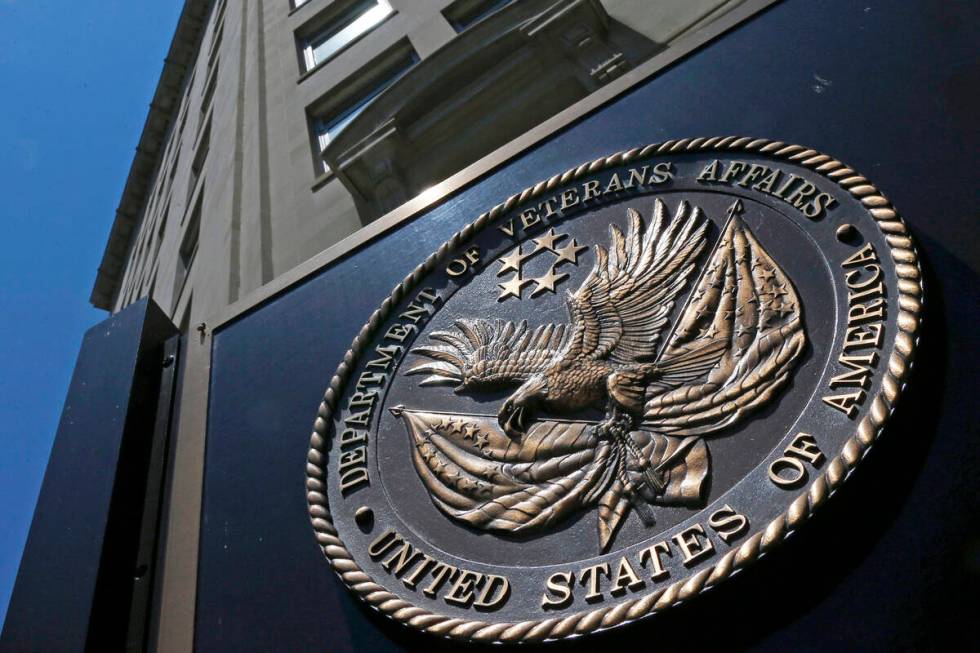Las Vegas VA clinic blamed in response to patient who died after fall

An inspector for the U.S. Department of Veterans Affairs has identified deficiencies in a Las Vegas VA clinic’s response to a seriously ill elderly patient who died after falling on the floor and cardiopulmonary resuscitation was delayed for more than four minutes.
The Office of the Inspector General for the department could not determine whether the delay in performing CPR led to the patient’s death in a waiting room but indicated that a nurse did not initiate the procedure upon noting that the person had no pulse, based on its report released Wednesday.
The office also found that the outpatient clinic’s overhead speakers for activating an emergency response were too difficult to hear, that VA police on the scene were unable to focus on securing the fallen patient from family members and bystanders, that the facility did not properly document the incident and that it could have ordered additional tests four days before the patient collapsed.
‘Gap in care’
Another finding was that the clinic apparently did not take prompt action when the male patient, a U.S. Marine veteran in his 80s, complained of feeling dizzy days before he died there.
“This gap in care resulted in the lack of an adequate plan to address the patient’s symptoms of dizziness,” the report stated.
Nevada Democratic U.S. Sens. Catherine Cortez Masto and Jacky Rosen requested the inspector general to investigate the 2021 death of the unnamed patient at the Northeast Primary Care Clinic, at 4461 E. Charleston Blvd., run by the VA Southern Nevada Healthcare System, following news reports about it in May 2022.
A video shown on television and online showed the patient lying on the floor for some time before receiving emergency care.
Both senators sent statements by email addressing the report’s findings.
“Nevada veterans put their lives on the line for this country, and I called for this federal investigation because of VA’s clear failure in responding to a veteran in need of emergency services,” Cortez Masto stated. “Our veterans deserve the best care, and I’ll work to ensure VA implements the changes outlined in this report and does right by all Nevada veterans and their families.”
Rosen stated that veterans are “heroes who deserve the best treatment and services our nation has to offer.” “Like many Nevadans, I was outraged by the footage showing an appalling lack of emergency care for a veteran in Southern Nevada,” she said, “and it’s why I demanded this federal investigation. The findings are deeply alarming, outlining the serious need for change and accountability — which I will continue to pursue because Nevada’s veterans deserve better.”
Incident taken ‘very seriously’
Charles Ramey, spokesman for the VA Southern Nevada Healthcare System in Las Vegas, said that the organization had already implemented a number of reforms a year prior to the inspection, such as a plan for urgent responses to medical emergencies and added staff training and exercises for emergencies at its clinics.
“We take this incident very seriously and are extremely saddened by the loss of this veteran and extend our deepest condolences to the family,” Ramey said.
The patient, the report stated, had “a medical history remarkable for obstructive sleep apnea, high blood pressure, chronic kidney disease, hyperlipidemia, severe coronary artery disease and heart failure.” He had been seen by a specialist and primary care providers at the clinic since 2018, the report said.
The man refused to undergo heart surgery as recommended by the facility, turned down therapy for hyperlipidemia and signed a directive declining CPR, which was added to his medical health record, the office reported.
The patient attended regular primary care appointments at the clinic from 2018 to 2021 and was taking two medications for high blood pressure, but in spring 2021, he told a nurse that the medications were making him feel dizzy and “it felt like the room is spinning,” the report stated.
The nurse instructed the patient to keep the appointment he had four days later but “did not record a set of vital signs at this visit,” the inspector found.
Delay in treatment
When the patient arrived back four days later, an intake nurse took note that he was “winded when ambulating, has unsteady gait and needs walker for assistance,” that his vital signs were normal “with the exception of an elevated pulse of 105.4,” the inspector’s office stated.
The person’s orthostatic levels, or blood pressure while standing, “were not documented” but the nurse “recorded the patient’s report of four falls in the past year, most recently the prior month,” the report said.
After the patient dropped to the floor at the clinic, the nurse delayed the start of CPR after not detecting a pulse or evidence the man was breathing, and CPR was not administered by a second nurse about “four and a half minutes after the patient’s fall,” according to the report.
However, the inspector general’s office stated in the report that it “was unable to determine if the delay initiating CPR led to the patient’s death.”
Contact Jeff Burbank at jburbank@reviewjournal.com or 702-383-0382. Follow him @JeffBurbank2 on Twitter.